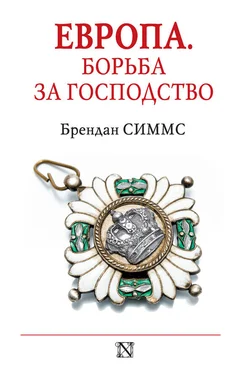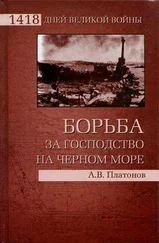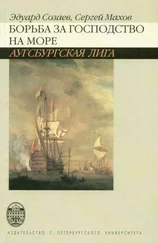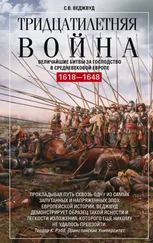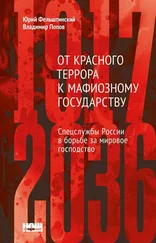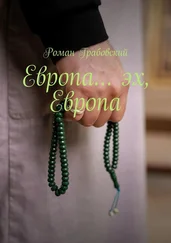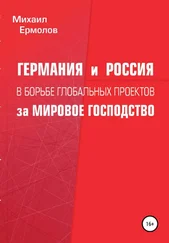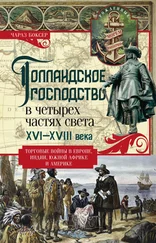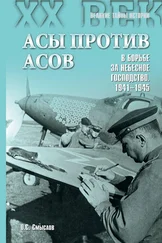Dan Diner, America in the eyes of the Germans. An essay on anti-Americanism (Princeton, 1996), pp. 105–50.
Имеется в виду конституционный референдум по президентскому законопроекту о реформе сената и создании регионов . Примеч. ред.
William Burr, ‘Sino-American relations, 1969: the Sino-Soviet border war and steps towards rapprochement’, Cold War History, 1, 3 (2001), pp. 73–112, especially pp. 87 and 104.
John Lewis Gaddis, ‘Rescuing choice from circumstance. The statecraft of Henry Kissinger’, in Gordon A. Craig and Francis L. Loewenheim (eds.), The diplomats, 1939–1979 (Princeton, 1994), pp. 564–92 (the phrase ‘authoritarian purposefulness’ is on p. 571).
G. R. Sloan, Geopolitics in United States strategic policy, 1890–1987 (Brighton, 1988), p. 173.
Carole Fink and Bernd Schaefer (eds.), Ostpolitik, 1969–1974. European and global responses (Cambridge, 2009).
Имеется в виду договор между РСФСР и Германией (1922) о восстановлении дипломатических отношений . Примеч. ред.
Henry Kissinger, Diplomacy (New York, 1994), p. 735.
Jussi Hanhimäki, The awed architect. Henry Kissinger and American foreign policy (Oxford, 2004), pp. 85–90.
Gordon S. Barrass, The Great Cold War. A journey through the hall of mirrors (Stanford, 2009), p. 169.
H. G. Linke (ed.), Quellen zu den deutsch-sowjetischen Beziehungen. Vol. II: 1945–1991 (Darmstadt, 1999), p. 146.
William Bundy, A tangled web. The making of foreign policy in the Nixon presidency (New York, 1998), p. 321.
Mary E. Sarotte, Dealing with the devil. East Germany, détente, and Ostpolitik, 1969–1973 (Chapel Hill, 2001), pp. 109–11.
Garton Ash, In Europe’s name.
Kundnani, Utopia or Auschwitz, p. 90.
Jeremy Suri, Henry Kissinger and the American century (Cambridge, Mass., 2007), pp. 171–172.
Niklas H. Rossbach, Heath, Nixon and the rebirth of the special relationship. Britain, the US and the EC, 1969–74 (Basingstoke, 2009).
Jenna Phillips, ‘Don’t mention the war? History suggests foreign policy can swing voters’, History and Policy, 22.4.2010, pp. 2–3.
Brian Harrison, Finding a role? The United Kingdom, 1970–1990 (Oxford, 2010), pp. 20–38.
Keith Hamilton, ‘Britain, France, and America’s year of Europe, 1973’, in Stone and Otte (eds.), Anglo-French relations, pp. 237–62.
Victor Israelyan, ‘The October 1973 war: Kissinger in Moscow’, Middle East Journal, 49 (1995), pp. 248–68.
‘Z’, ‘The year of Europe?’, Foreign Affairs, 52, 2 (January 1974).
A. James McAdams, ‘The new diplomacy of the West German Ostpolitik’, in Gordon A. Craig and Francis L. Loewenheim (eds.), The diplomats, 1939–1979 (Princeton, 1994), p. 559.
Tony Smith, America’s mission. The United States and the worldwide struggle for democracy in the twentieth century (Princeton, 1994), p. 266.
Interview with Zbigniew Brzezinski, Le Nouvel Observateur, 15–21.1.1998.
Norman Stone, The Atlantic and its enemies. A personal history of the Cold War (London, 2010), chapter 19, ‘The Kremlin consolations’, pp. 353–81.
Jonathan Haslam, Russia’s Cold War. From the October Revolution to the fall of the Wall (New Haven and London, 2011), p. 304.
Jonathan Haslam, The Soviet Union and the politics of nuclear weapons in Europe, 1969–87. The problem of the SS-20 (Basingstoke, 1989), p. 76.
Michael Ploetz, ‘Mit RAF, Roten Brigaden und Action Directe – Terrorismus und Rechtsextremismus in der Strategie von SED und KPdSU’, Zeitschrift des Forschungsverbundes SED-Staat, 22 (2007), pp. 117–44.
Christopher Andrew, The world was going our way. The KGB and the battle for the Third World (New York, 2005).
Paolo Filo della Torre, Edward Mortimer and Jonathan Story (eds.), Eurocommunism. Myth or reality? (Harmondsworth, 1979).
Odd Arne Westad, The global Cold War. Third World interventions and the making of our times (Cambridge, 2005), p. 245.
Christoph Bluth, The two Germanies and military security in Europe (Basingstoke, 2002), pp. 99–106, 227 and passim. О восприятии современниками советского превосходства в обычных вооружениях: Jack L. Snyder, The Soviet strategic culture. Implications for limited nuclear options (Santa Monica, 1977), pp. 23–4.
Aryeh Neier, Taking liberties. Four decades in the struggle for rights (New York, 2003), and Samuel Moyn, The last Utopia. Human rights in history (Cambridge, Mass., and London 2010).
Thomas J. W. Probert, ‘The innovation of the Jackson—Vanik amendment’, in Brendan Simms and D. J. B. Trim (eds.), Humanitarian intervention. A history (Cambridge, 2011), pp. 323–42 (quotation p. 323). Мне также очень помогли беседы с моим студентом Джонатаном Куком, который пишет диссертацию по Джексону.
Clyde Haberman, ‘Decades later, Kissinger’s words stir fresh outrage among Jews’, The New York Times, 16.12.2010, which reviews the latest release of tapes from the Oval Office.
Noam Kochavi, ‘Insights abandoned, exibility lost: Kissinger, Soviet Jewish emigration, and the demise of détente’, Diplomatic History, 29, 3 (2005), pp. 503–29, especially pp. 521–2.
Noam Kochavi, ‘Insights abandoned, exibility lost: Kissinger, Soviet Jewish emigration, and the demise of détente’, Diplomatic History, 29, 3 (2005), pp. 503–29, especially pp. 521–2.
‘Report by Mr Leo Tindemans, Prime Minister of Belgium, to the European Council’, Bulletin of the European Communities, supplement 1/76 (1975), pp. 3, 5 and 11.
Keith Hamilton, ‘Cold War by other means: British diplomacy and the Conference on Security and Cooperation in Europe, 1972–1975’, in Wilfried Loth and Georges-Henri Soutou (eds.), The making of détente. Eastern and western Europe in the Cold War, 1965–75 (New York and London, 2008), pp. 169 and 172. See also Roger Beetham, ‘Observations on British diplomacy and the CSCE process’, British Scholar, III, 1 (2010), pp. 127–32. Благодарю Томаса Проберта за это указание.
Читать дальше
Конец ознакомительного отрывка
Купить книгу
